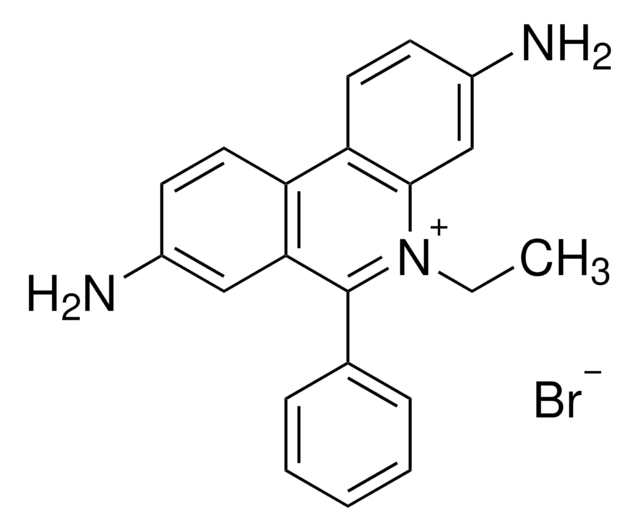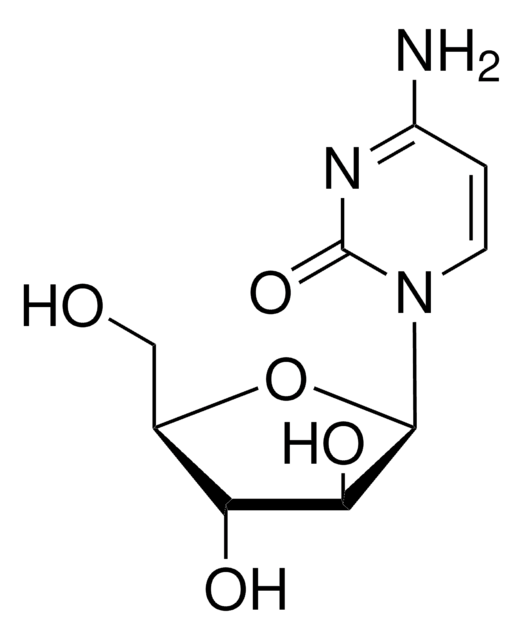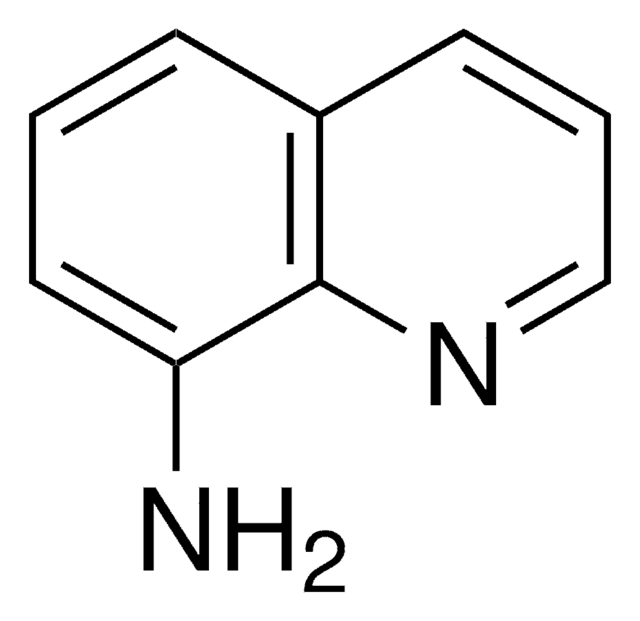A8986
Alexidine dihydrochloride
≥95% (HPLC)
Synonym(s):
1,1′-Hexamethylene-bis(5-[2-ethylhexyl]biguanide)
About This Item
Recommended Products
Quality Level
Assay
≥95% (HPLC)
form
powder
storage condition
desiccated
color
white to off-white
solubility
DMSO: ≥10 mg/mL
storage temp.
−20°C
SMILES string
Cl.Cl.CCCCC(CC)CNC(=N)NC(=N)NCCCCCCNC(=N)NC(=N)NCC(CC)CCCC
InChI
1S/C26H56N10.2ClH/c1-5-9-15-21(7-3)19-33-25(29)35-23(27)31-17-13-11-12-14-18-32-24(28)36-26(30)34-20-22(8-4)16-10-6-2;;/h21-22H,5-20H2,1-4H3,(H5,27,29,31,33,35)(H5,28,30,32,34,36);2*1H
InChI key
BRJJFBHTDVWTCJ-UHFFFAOYSA-N
Looking for similar products? Visit Product Comparison Guide
Application
- as an antiseptic to study its antimicrobial activity in saliva-derived microcosm biofilms
- as a protein tyrosine phosphatase localized to the mitochondrion 1 (PTPMT1)-specific inhibitor to study its effects on spare respiratory capacity and viability of CD8+ T cells
- as a PTPMT1 inhibitor to study its antiviral effect on human cytomegalovirus (HCMV) replication in HCMV-infected human foreskin fibroblast (HFF) cells
Biochem/physiol Actions
Features and Benefits
Signal Word
Warning
Hazard Statements
Precautionary Statements
Hazard Classifications
Eye Irrit. 2 - Skin Irrit. 2 - STOT SE 3
Target Organs
Respiratory system
Storage Class Code
11 - Combustible Solids
WGK
WGK 3
Flash Point(F)
Not applicable
Flash Point(C)
Not applicable
Certificates of Analysis (COA)
Search for Certificates of Analysis (COA) by entering the products Lot/Batch Number. Lot and Batch Numbers can be found on a product’s label following the words ‘Lot’ or ‘Batch’.
Already Own This Product?
Find documentation for the products that you have recently purchased in the Document Library.
Customers Also Viewed
Articles
Protein tyrosine phosphatases (PTPs) and related enzymes (more than a hundred coded by the human genome) are more numerous than serine/threonine phosphatases. They belong to four families, three of which possess a conserved cysteine for catalysis and some conserved features of 3-dimensional structure. The catalytic mechanism of these PTPs involves the transient formation of a covalently phosphorylated enzyme.
Our team of scientists has experience in all areas of research including Life Science, Material Science, Chemical Synthesis, Chromatography, Analytical and many others.
Contact Technical Service











